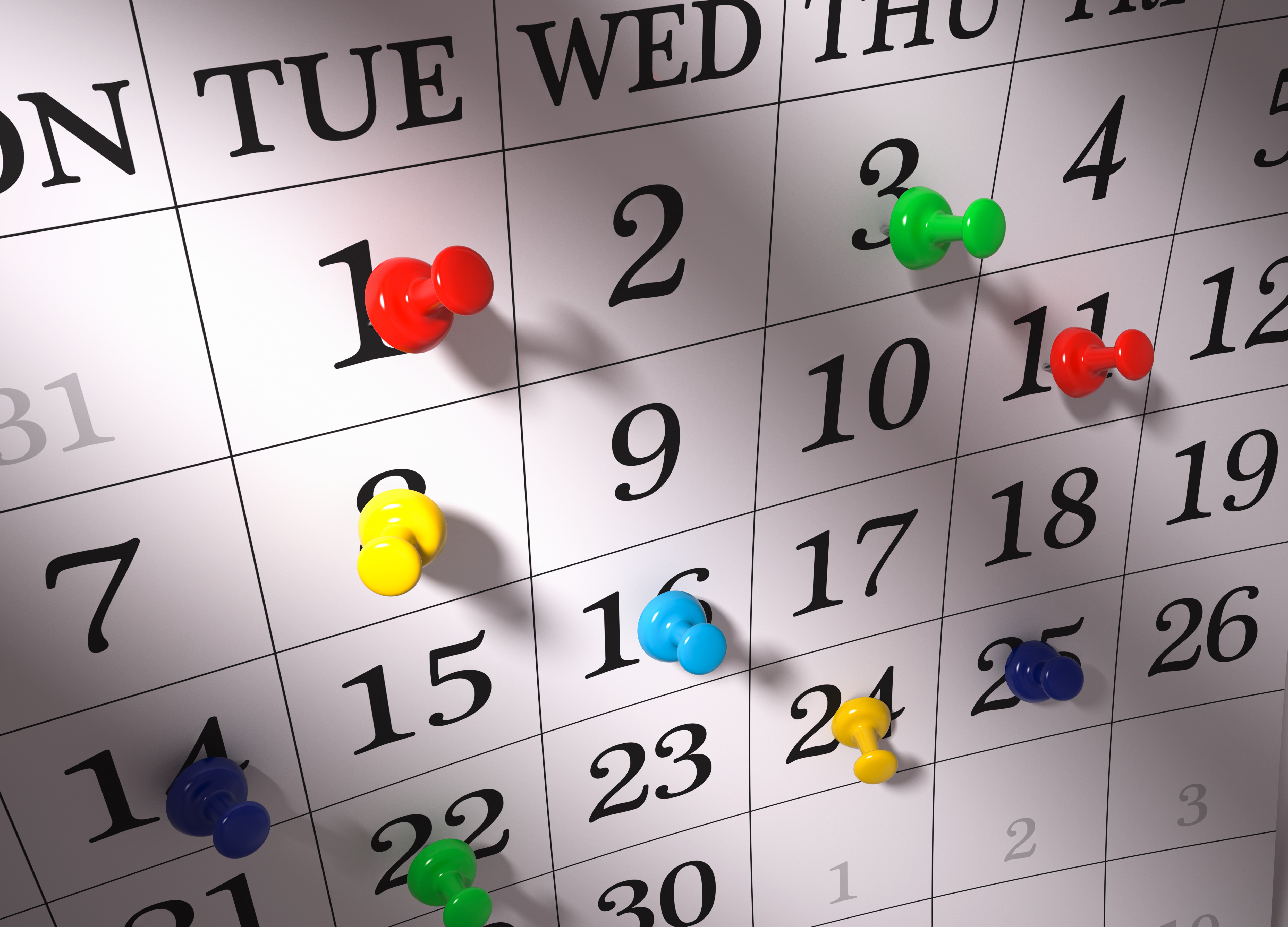Your Emotional Calendar
Counselling Calgary
Summer is here. Have you ever stopped and reflected on what you think and feel about this particular season? Recently, I came across an interesting book called the “The Emotional Calendar” written by a Harvard psychiatrist named Dr. John R. Sharp. One of the main points he makes is that we all have a personal emotional calendar that is, in a sense, superimposed over the paper calendar. Our emotional calendar contains emotional hotspots — accumulated memories over the years that are capable of producing intense emotions that become associated with specific physical conditions or seasons on the paper calendar. Some common hotspots are tied to shared cultural events (i.e. Christmas, birthdays, end of the school year, etc.) but also include unique personal events (i.e. first break up, birth of a child, time of a major loss, etc.). He encourages people to examine their emotions and behaviours throughout the year to recognize patterns and mindfully establish strategies to increase a sense of well-bing and ultimately be able to embrace each season.
Here are some things that Dr. Sharp says can can influence your emotional calendar during the summer:
• Expectations. Our experiences of past summers often carries a tremendous amount of emotional resonance that is filled with expectations of how we should be feeling and behaving (i.e. change in schedule, time of relaxation, experiencing or recapturing the fun of past summers, planning vacations, being carefree and happy, etc.). What expectations do you feel impact you during summer?
• Personal goals.
Perhaps with the warmer weather or a slow down in pace, people often set personal goals that are sometimes overambitious or unrealistic:
◦ “This is the summer I’ll meet the right guy (or girl) and fall in love”
◦ “This summer, I’ll work out every day and get super fit”
◦ “This summer, I’m going to have the most amazing travel adventure ever”
◦ “This summer, I am going to do absolutely nothing I don’t want to do and not torture myself about anything”
Do you have any goals that seem to be reoccurring during the summer season?
• 3 Phases of Summer.
◦ The early phase of summer often includes final pushes to finish up the “work” of spring as well as (frantically) trying to make plans and adjust to modified routines.
◦ The deep phase is characterized by feeling more or less settled and content or at least trying to be. However, it is usually around this time where people tend to compare the current summer with summers past (i.e. Is this summer as wonderful as the one 5 years ago? Are my kids having us much fun as I did when I was their age? I wish I could be a kid again and not have to work!).
◦ The waning phase is challenging in that despite how well the summer has gone, it didn’t quite meet our expectations and wasn’t ______ enough (insert: fun, memorable, good, relaxing, productive, etc.). The reality of summer coming to an end can breed a sense of disappointment mixed with feelings of dread that the next season is going to be cold and much, much busier.
How do these phases of summer emotionally impact you?
•Unique Factors.
◦ Heat: It may be obvious that some people are more sensitive to heat and humidity but it may be surprising that some researchers have found there is a kind of “reverse” or “tropical” SAD that some people experience.
◦ Sex & Alcohol: Researchers have found that there is a general riskier attitude towards sex and alcohol during the summer season.
Do these factors influence your experience of summer currently or in the past?
Some of the strategies Dr. Sharp suggests to gain more control:
• Awareness. Taking regular time to sort through our feelings, conditioned reactions and behaviours that are influenced by emotional hotspots allows for more deliberate and informed strategies to establish and protect a sense of well-being.
◦Is there a physical or environmental factor that’s having an effect on my mood?
◦Is there a cultural seasonality that’s influencing me?
◦Is there some personal hotspot that’s burning a hole in my mind?
• Re-define. As mentioned above, past summers have an impact on us. By understanding what summers were like for you and what you continue to carry with you, these insights can help you more realistically re-define the meaning, purpose and associations of summertime.
• Make a Change. With fresh insight, you can start to explore and experiment with making major or minor changes in your circumstances to effectively manage the effects of emotional hotspots (i.e. moving, keeping cool, adjust plans, trying to find another perspective, establishing regular times that have meaning just for you to offset emotional charges that are set by the cultural calendar, etc.).
As you continually track and honour your own emotional calendar, each passing year can be more steady instead of riding your usual emotional rollercoaster. In addition, establishing more strategies for taking care of yourself during typical emotional hotspots can lead to increased enjoyment and the embracing that each season has to offer!
To learn more about emotional calendars and the other seasons, check out the book!
Robyn Manzano, MA specializes in the areas of self care and personal growth, among many others. For more information on Robyn, her work, or other articles she’s written for Counseling Calgary Living Well click here to link to her full bio page.




